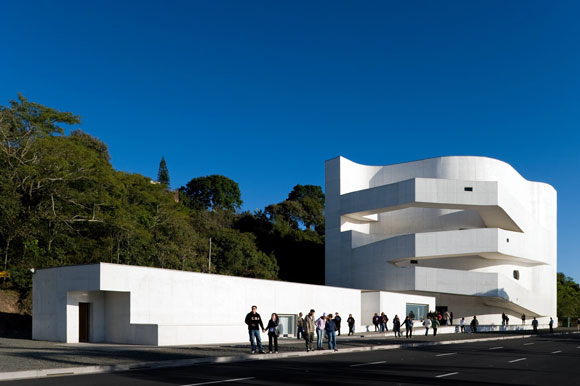WHITE ON WHITE ON WHITE
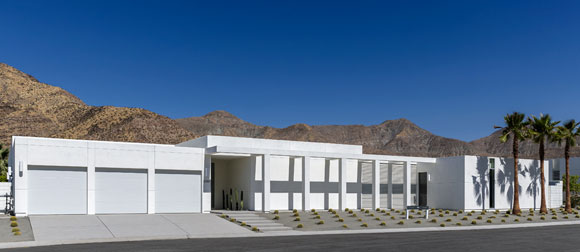
Front of Linea Residence G, Palm Springs, California, by Poon Design, Andrew Adler and Prest-Vuksic (photo by Mark Ballogg)
Seeking a nice white paint for a client presentation on colors and materials, I am lost within our Dunn Edwards paint samples. Alongside the Usual Suspects, Swiss Coffee and Pearl White, there are 98 other choices for white. Literally, ninety-eight choices. Is there any other color in the world that comes in so many variations? In contrast, there are only ten choices for black.
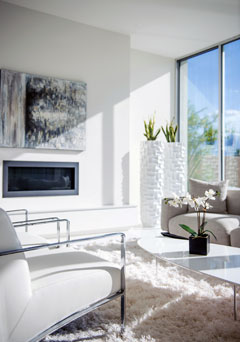
For white paint, the options are called random things like, Pinch of Pearl, Ivory Charm, Vanilla Shake, and Morning Mist. I am certain that if I presented Ivory Keys vs. Frosting Cream, clients will say, “Is there a difference? The two whites look the same!”
Poon Design recently completed several new residences all in white. White on white. Actually, white on white on white. The compositions have been graciously complimented as stunning, sophisticated and stylish. Though some criticisms have called our houses icy or unfriendly. You decide.
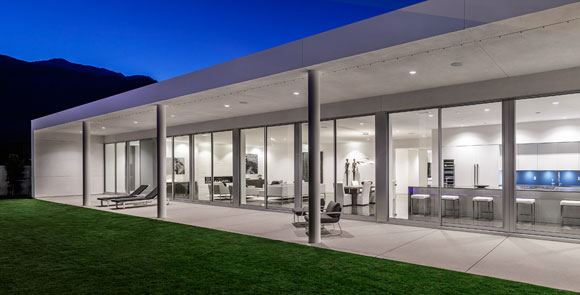
In art history, painter Kazimir Valevich kicked it all off in 1918 with his work entitled White on White, as part of the Russian Suprematism movement. But white on white architecture has been explored as far back as ancient Athens.
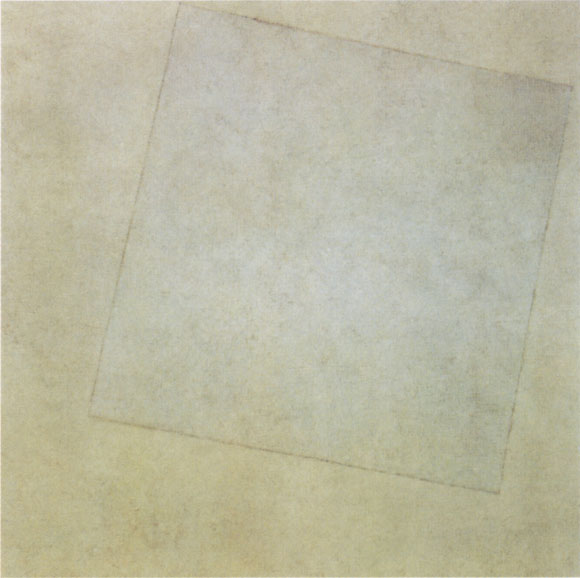
The psychology of this single non-color remains at the forefront of debate. For example, white for a wedding portrays purity and innocence. In visual arts, white represents tranquility and peace—even at times, Heaven. Whiteness also suggests contemplation and reflection.
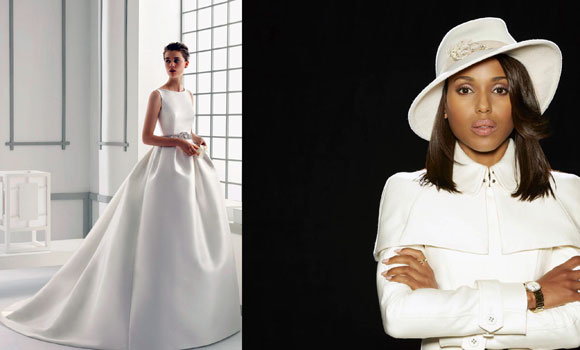
In the battles of righteousness, white is good. For pop culture, the television series, Scandal, references the “White Hats,” who are heroes to be honored and appreciated.
But white can be cold and sterile, such as hospitals and lab coats. The cleanliness of white is comforting, but not so when the white is also isolating and impersonal.
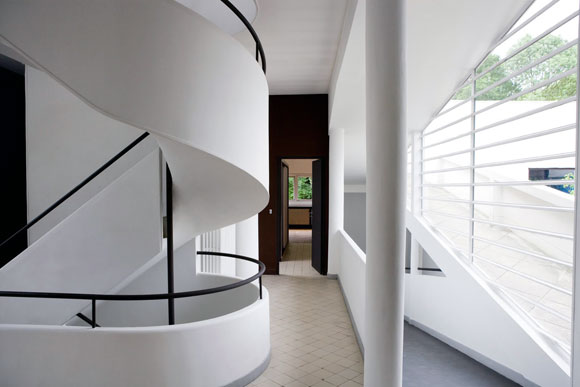
In step with the white agenda of Swiss-French architect Le Corbusier (1887-1965), present day architect Richard Meier established his world famous reputation through his white-on-white modern architecture. He probably doesn’t need the Dunn Edwards paint catalog for any other color.
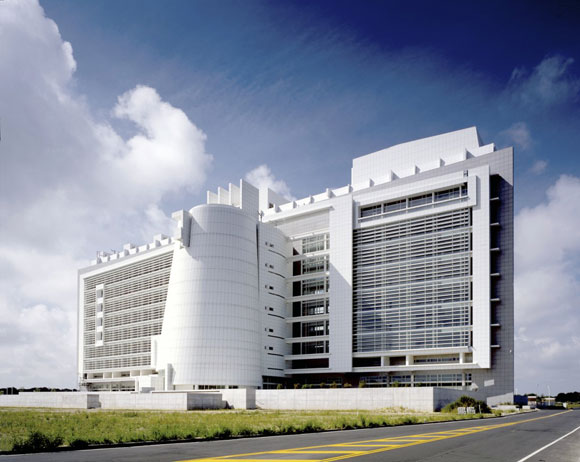
Meier explains, “White is the most wonderful color because within it, you can see all the colors of the rainbow. The whiteness of white is never just white; it is almost always transformed by light and that which is changing; the sky, the clouds, the sun and the moon.”
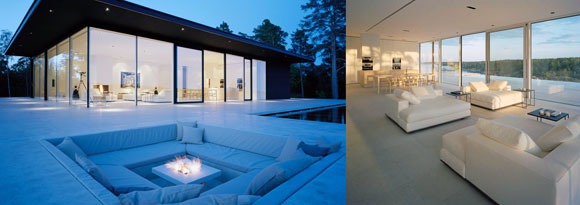
If Meier is correct in this magical white grace, why are so many movie villains portrayed in pale, stark, frosty houses? Take for example the sadistic murderer from The Girl With the Dragon Tattoo. His contemporary boxy house is chillingly white, frighteningly distant. It is so perfectly tidy and methodical, that even the luxurious décor appears austere. This architectural environment is for an owner with no personality or character, or worse, an evil villain with no soul or conscious.
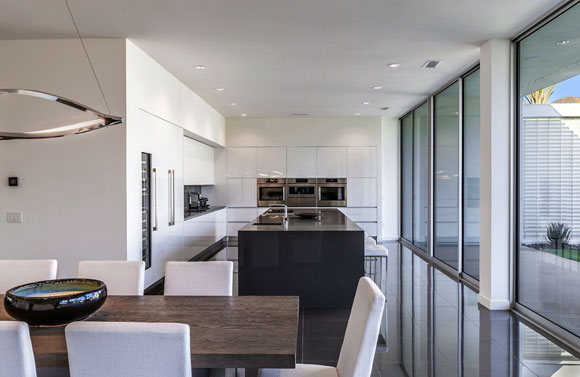
At Poon Design, we view our white explorations as architecture being a blank canvas, awaiting the inhabitants and visitors to add the colors of their life to the canvas. Thereby, architecture results in an ever-changing work of art.
